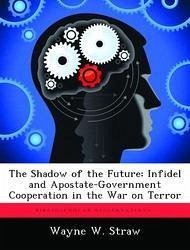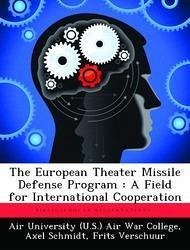Nicht lieferbar

The Shadow of the Future: Infidel and Apostate-Government Cooperation in the War on Terror
Versandkostenfrei!
Nicht lieferbar
This paper focuses on a strategy for the application of kinetic power against the leadership of the revolutionary Islamic vanguard. The author begins by examining the Islamic revolutionaries' view of the world and their beliefs about apostates and infidels in order to reveal seams and rifts the United States can exploit. From this analysis, it is clear that apostate Islamic regimes (whom the revolutionaries targeted first) can effectively suppress most of the threats residing within their borders, although there are some insurgent strongholds where government forces fear to tread. The US milit...
This paper focuses on a strategy for the application of kinetic power against the leadership of the revolutionary Islamic vanguard. The author begins by examining the Islamic revolutionaries' view of the world and their beliefs about apostates and infidels in order to reveal seams and rifts the United States can exploit. From this analysis, it is clear that apostate Islamic regimes (whom the revolutionaries targeted first) can effectively suppress most of the threats residing within their borders, although there are some insurgent strongholds where government forces fear to tread. The US military can assist in these areas, but the apostate regimes prefer to limit the scope and size of US involvement--particularly ground force--in order to avoid the appearance of subjugation to, or occupation by, the United States. On the other hand, correctly employed airpower, particularly covert airpower, can act as a force multiplier for the apostate governments without drawing the ire of the larger Muslim community. In order to ensure cooperation and future access to high-ranking, insurgent leaders residing within the borders of apostate countries, the United States must employ airpower in a manner that is coordinated with the apostate regimes, ensures deniability, avoids collateral damage, and does not acknowledge US involvement after the attack.





